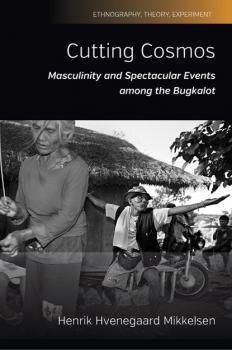ТОП просматриваемых книг сайта:
Ethnography, Theory, Experiment
Скачать книги из серии Ethnography, Theory, ExperimentАннотация
For the first time in over 30 years, a new ethnographic study emerges on the Bugkalot tribe, more widely known as the Ilongot of the northern Philippines. Exploring the notion of masculinity among the Bugkalot, Cutting Cosmos is not only an experimental, anthropological study of the paradoxes around which Bugkalot society revolves, but also a reflection on anthropological theory and writing. Focusing on the transgressive acts through which masculinity is performed, this book explores the idea of the cosmic cut , the ritual act that enables the Bugkalot man to momentarily hold still the chaotic flows of his world.
Аннотация
In Brazil, where forest meets savanna, new towns, agribusiness and hydroelectricity plants form a patchwork with the indigenous territories. Here, agricultural work, fishing, songs, feasts and exchanges occupy the Enawenê-nawê for eight months of each year, during a season called Yankwa. Vital Diplomacy focuses on this major ceremonial cycle to shed new light on classic Amazonian themes such as kinship, gender, manioc cultivation and cuisine, relations with non-humans and foreigners, and the interplay of myth and practice, exploring how ritual contains and diverts the threat of violence by reconciling antagonistic spirits, coordinating social and gender divides, and channelling foreign relations and resources.
Аннотация
Violent Becomings conceptualizes the Mozambican state not as the bureaucratically ordered polity of the nation-state, but as a continuously emergent and violently challenged mode of ordering. In doing so, this book addresses the question of why colonial and postcolonial state formation has involved violent articulations with so-called ‘traditional’ forms of sociality. The scope and dynamic nature of such violent becomings is explored through an array of contexts that include colonial regimes of forced labor and pacification, liberation war struggles and civil war, the social engineering of the post-independence state, and the popular appropriation of sovereign violence in riots and lynchings.
Аннотация
In one form or another, water participates in the making and unmaking of people’s lives, practices, and stories. Contributors’ detailed ethnographic work analyzes the union and mutual shaping of water and social lives. This volume discusses current ecological disturbances and engages in a world where unbounded relationalities and unsettled frames of orientation mark the lives of all, anthropologists included. Water emerges as a fluid object in more senses than one, challenging anthropologists to foreground the mutable character of their objects of study and to responsibly engage with the generative role of cultural analysis.






